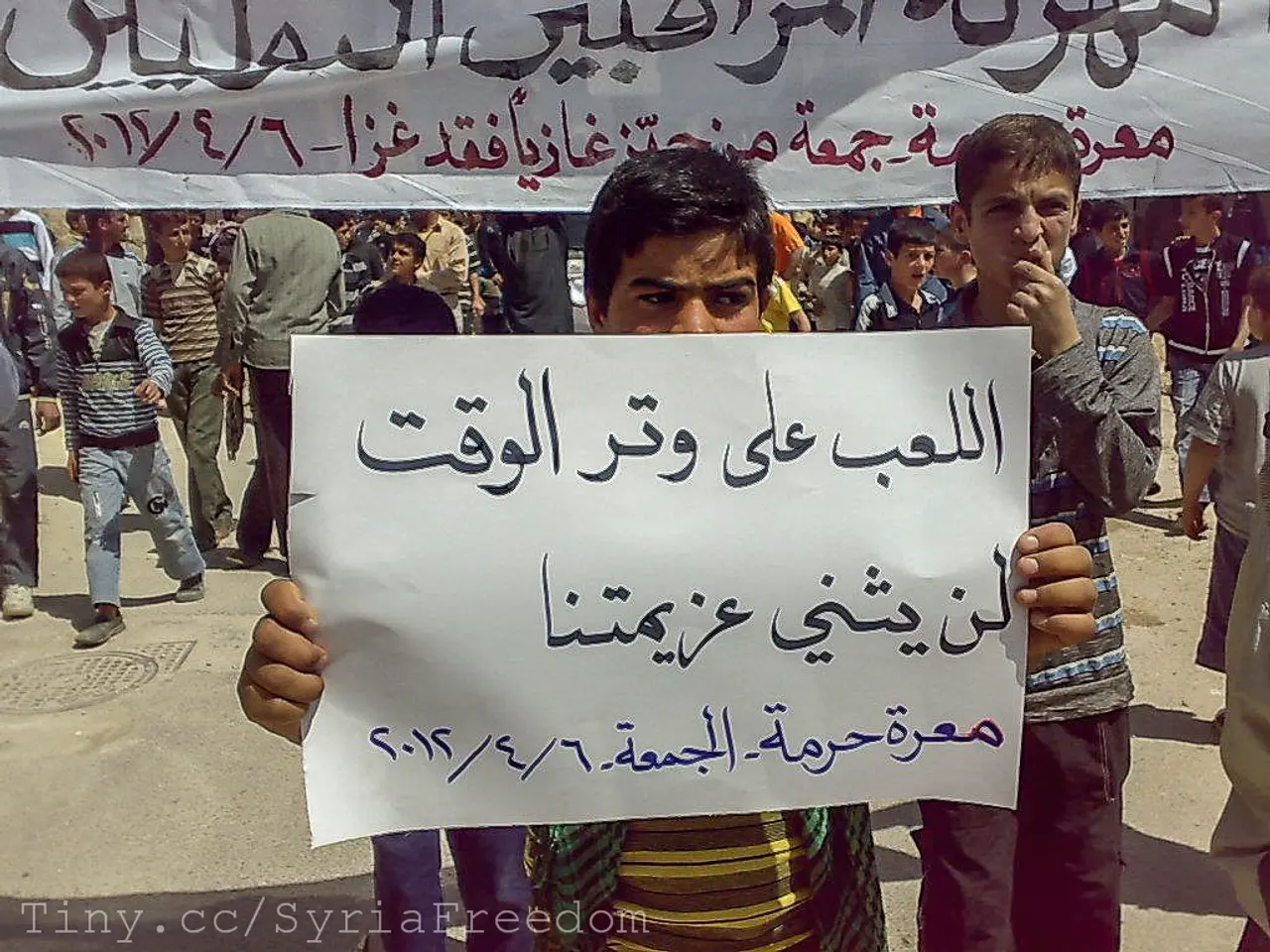A Deeper Understanding of Proxy Warfare: Principal-Agent Theory Explained
Discussion in a Podcast on Irregular Warfare: Exploring Concepts of Proxy Warfare and Real-world Applications
In the latest episode of the Irregular Warfare Podcast, host Kyle Atwell delves into the complexities of proxy warfare with guests Dr. Nakissa Jahanbani, Dr. Vladimir Rauta, and retired Lieutenant General Ken Tovo.
The discussion centres around the role of principal-agent theory in explaining the dynamics and challenges of proxy warfare. This theory, originally developed in economics and political science, offers valuable insights into the relationships between external sponsors (principals) and proxy forces (agents).
One of the key aspects of proxy warfare is the delegation of military action. A state or actor (the principal) assigns certain tasks to a non-state actor or allied faction (the proxy or agent) to indirectly influence a conflict, reducing their own risk and avoiding direct military involvement or international backlash.
However, this delegation comes with its own set of challenges. The principal has limited direct control over the proxy's actions, and the proxy may operate with some autonomy, leading to information asymmetries. The principal may lack full information about the proxy's operations, intentions, or compliance with agreed objectives.
Moreover, the proxy's goals, priorities, or incentives may differ from the principal's. While the principal's objective is usually strategic (e.g., weakening an adversary), proxies might seek territorial control, resources, legitimacy, or survival, which can diverge or conflict with the principal’s aims.
These differences can lead to situations such as "moral hazard," where the proxy behaves more aggressively or recklessly than the principal would prefer. The principal faces high monitoring and enforcement costs to ensure compliance and may struggle to penalize or influence proxies who act contrary to their interests.
The episode further explores the challenges that arise when the interests of the principal and the proxy diverge. These include strategic drift or mission creep, reduced accountability, unintended conflicts or rivalries, and difficulty in termination.
In strategic drift or mission creep, proxies may pursue their own agenda, expanding their objectives beyond the principal’s original goals, potentially escalating conflicts or undermining the principal’s broader strategy.
Reduced accountability can lead to proxies' actions harming the principal’s reputation or diplomatic standing, especially if they commit human rights abuses or criminal activities that the principal cannot directly control but may be held responsible for.
Unintended conflicts or rivalries can occur when multiple proxies supported by the same principal compete or fight amongst themselves, reducing overall effectiveness and complicating the principal’s strategy.
Finally, once proxies achieve battlefield success or gain power, they may resist disarmament or political reintegration, making it hard for the principal to end their support or disengage from the conflict.
The Irregular Warfare Podcast is a coproduction between West Point's website and West Point's Department of Social Sciences. You can subscribe to the podcast on Apple Podcasts, Stitcher, TuneIn, Spotify, or your favourite podcast app. The episode can be heard in full below.
Retired Lieutenant General Ken Tovo served for almost forty years in the Army, including as commanding general of US Army Special Operations Command. Dr. Nakissa Jahanbani is an assistant professor in West Point's Department of Social Sciences and a researcher at the Combating Terrorism Center at West Point. Dr. Vladimir Rauta is a lecturer in politics and international relations at the University of Reading and the editor of the forthcoming Routledge Handbook of Proxy Wars.
This article was originally recorded and released by the Social Science of War podcast.
- In the broader context of war-and-conflicts, principal-agent theory provides an essential framework to understand proxy warfare, particularly the relationship between military forces and external sponsors in special operations.
- Warfare strategies often involve delegating military action to proxy forces, with these parties playing a significant role in warfare, especially in situations where direct military engagement may be risky or politically undesirable.
- The area of politics and general-news is filled with examples of proxy warfare, as principals (usually states or actors) engage in warfare indirectly through allied factions or non-state actors, often leading to complex dynamics that can have far-reaching consequences.





